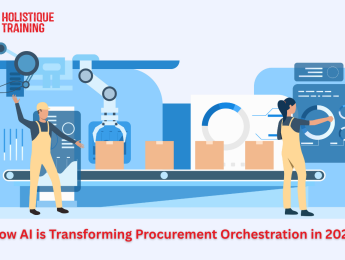- Table of Contents
- 1) Introduction:
- 2) Dubai as a Global Centre for Professional Education
- 3) Skills Employers in UAE Value in Accounting & Finance
- a) Financial Reporting and Analysis
- b) Budgeting, Forecasting, and Corporate Planning
- c) Cost Accounting and Performance Management
- d) Audit and Compliance (Including UAE Corporate Tax and VAT)
- e) Digital Tools and Financial Software Proficiency
- f) Soft Skills: Communication, Stakeholder Management & Negotiation
- Market Insight
- 4) Types of Short Courses Available in Dubai
- a) Fundamentals Courses
- b) Professional Accounting Courses
- c) Financial Analysis and Modelling
- d) Taxation and Compliance
- e) Auditing and Internal Control
- f) Islamic Finance
- Table 1: Summary of Short Course Categories
- 5) Highlight Key Accredited Certification Tracks
- a) ACCA (Association of Chartered Certified Accountants)
- b) CMA (Certified Management Accountant)
- c) CPA (Certified Public Accountant)
- d) CIA (Certified Internal Auditor)
- e) CFA (Chartered Financial Analyst)
- Table 2: Certification Comparison
- 6) Top Training Providers & Institutions in Dubai
- PwC’s Academy Middle East
- Deloitte Academy Dubai
- Holistique Training (UK-Registered)
- Morgan International
- Phoenix Financial Training (DIFC)
- Zabeel International Institute
- Kaplan Professional Middle East
- London Business School Dubai
- American University in Dubai (AUD)
- 7) Career Outcomes & Salary Expectations in UAE
- 8) How to Choose the Right Short Course
- Career Purpose
- Accreditation
- Learning Structure
- Flexibility
- Networking Opportunities
- Return on Investment
- 9) Conclusion
1) Introduction:
Accounting and finance form the backbone of every business, regardless of size or industry. Accounting involves recording, analysing, and reporting financial transactions, while finance focuses on managing assets, investments, budgets, and long-term business planning. Together, they ensure that organisations operate efficiently, remain compliant with regulations, and make informed strategic decisions. In 2025, the global business environment is increasingly shaped by data analytics, digital transformation, and automation, making accounting and finance professionals more essential than ever.
The modern finance function goes far beyond bookkeeping. Finance teams now play a strategic role in forecasting, performance management, risk assessment, and investment decisions. According to a report by McKinsey & Company , over 60% of CFOs globally are shifting their finance teams toward more analytical and decision-support roles rather than purely transactional work . This shift highlights the importance of upskilling in areas such as data analytics, digital finance, ERP systems, and strategic financial modelling.
Dubai has positioned itself as a major global hub for trade, business operations, and financial services. Home to international companies, free-trade zones, and advanced digital infrastructure, it has become a destination for professionals seeking career advancement. This aligns closely with UAE Vision 2030 and the Dubai Economic Agenda (D33), which aim to build a highly skilled workforce, expand the financial services sector, and support professional education and lifelong learning.
Short courses in accounting and finance in Dubai offer practical, focused, and industry-aligned learning pathways that help professionals upgrade their skills or shift careers quickly. Whether someone is new to accounting or aiming to progress into financial leadership roles, short courses provide a flexible and efficient way to gain relevant expertise and professional credentials
2) Dubai as a Global Centre for Professional Education
Dubai has earned a reputation as a regional leader in professional training and executive education, attracting learners from across the Middle East, Africa, Asia, and Europe. The city is home to numerous international training academies, professional institutes, and universities that offer globally recognised qualifications. Many of these institutions collaborate with regulatory bodies, multinational corporations, and financial institutions to ensure relevance and real-world applicability.
One of the most significant elements of Dubai’s financial ecosystem is the Dubai International Financial Centre (DIFC). DIFC hosts over 4,300 companies, including global banks, private equity firms, fintech companies, wealth management institutions, and consulting firms. The concentration of financial services employers makes Dubai an ideal location for individuals looking to network, secure internships, or transition into finance careers.
Demand for skilled finance professionals remains consistently high in the UAE. A PwC Middle East Workforce Hopes and Fears Survey 2023 found that 86% of employers in the UAE prioritise hiring employees with strong analytical and financial decision-making skills. Roles such as accountants, auditors, tax specialists, and financial analysts continue to be among the most in-demand positions across sectors such as real estate, technology, healthcare, investment, logistics, and government organisations.
The UAE government also encourages continuous learning and professional development. Many employers support employee training schemes, reimburse qualification costs, or partner with training academies to build internal talent. This culture of lifelong learning makes Dubai one of the most supportive environments for individuals seeking to start, grow, or transform their careers in accounting and finance.
3) Skills Employers in UAE Value in Accounting & Finance
Employers in the UAE prioritise both technical financial competence and strategic analytical skills. Below are key skill areas currently in demand:
a) Financial Reporting and Analysis
Professionals must be able to prepare accurate financial statements and interpret them for business insight. UAE companies follow International Financial Reporting Standards (IFRS), so familiarity with IFRS frameworks is essential. Strong reporting skills enable organisations to understand profitability, liquidity, and financial performance.
b) Budgeting, Forecasting, and Corporate Planning
Finance professionals are increasingly expected to contribute to strategic business planning. Budgeting and forecasting skills help organisations plan for future financial needs, evaluate risks, and align operations with long-term goals. These skills are especially important in sectors with dynamic market conditions such as real estate, logistics, and retail.
c) Cost Accounting and Performance Management
Cost accounting focuses on evaluating production costs, overheads, and pricing strategies. Performance management, including KPI analysis and cost-efficiency assessment, helps senior management make better operational decisions. This combination of skills is particularly valued among manufacturing, construction, logistics, and FMCG companies.
d) Audit and Compliance (Including UAE Corporate Tax and VAT)
Since the introduction of VAT in 2018 and Corporate Tax in 2023, compliance skills have become essential. Audit professionals ensure that organisations remain compliant with legislation, identify risks, and maintain good governance practices. Internal auditors are in high demand, particularly in government entities, banks, and large corporates.
e) Digital Tools and Financial Software Proficiency
In today’s finance environment, technical software proficiency is no longer optional—it has become a core competency. Employers in Dubai increasingly seek candidates who can use digital tools to improve the accuracy, speed, and strategic value of financial work.
Advanced Microsoft Excel remains the foundational tool for most finance activities. Beyond basic formulas, professionals are expected to understand:
- PivotTables and Power Query
- VLOOKUP/XLOOKUP and INDEX-MATCH functions
- Forecasting tools
- Data modelling
- Financial dashboards and visual summaries
Excel is often the primary environment for budgeting, cost control, and financial forecasting, making mastery a major differentiator for junior and senior professionals alike.
Enterprise Resource Planning (ERP) systems such as SAP and Oracle Financials are widely used in medium and large organisations in the UAE. These systems integrate accounting, procurement, HR, and supply chain processes into a single platform. Professionals who understand ERP workflows are better equipped to:
- Improve data accuracy
- Reduce manual financial processes
- Support real-time reporting
- Strengthen audit and compliance efficiency
This skill is especially valuable in corporate finance, logistics, retail, and government sectors.
Accounting software packages, including Tally, Zoho Books, and QuickBooks, are used extensively by SMEs and service-based companies. Familiarity with these systems enables professionals to handle daily bookkeeping, bank reconciliation, payroll entries, invoicing, and general ledger management efficiently.
Additionally, Power BI, Tableau, and other business intelligence platforms have become leading tools for data visualisation and performance reporting. Companies now expect finance teams to present insights visually rather than through static spreadsheets. Power BI is particularly valued for its ability to connect live data sources, automate reporting, and create interactive dashboards used by senior leadership teams to make decisions.
Overall, technology-driven finance functions rely heavily on automation and data analytics. Short courses that teach these software tools provide the practical hands-on experience needed to remain competitive in the evolving UAE job market.
f) Soft Skills
While technical skills are essential, employers consistently emphasise that successful finance professionals also excel in communication and collaboration. Accounting and finance teams often work closely with departments such as operations, marketing, HR, and procurement. This means professionals must be able to:
- Translate complex financial data into clear, concise insights
- Explain risks, forecasts, and financial decisions to non-finance colleagues
- Present financial information confidently to managers, clients, and stakeholders
- Negotiate effectively with suppliers and external auditors
For instance, a finance analyst might need to justify changes in budget allocation to the operations team. Similarly, an internal auditor must communicate findings diplomatically while maintaining compliance standards. Strong presentation skills, adaptability, and emotional intelligence help maintain trust and collaboration.
In Dubai’s multicultural work environment, these soft skills also support:
- Cross-cultural communication
- Understanding varied business etiquette styles
- Managing stakeholder expectations in matrix organisations
Finance professionals who combine technical expertise with communication and negotiation capabilities are more likely to progress into leadership and management roles, where influence and decision-making are central responsibilities.
Market Insight
A study by Hays Salary Guide UAE 2024 shows that certified professionals (CMA, ACCA, CPA, CFA) earn 15–40% higher salaries than non-certified colleagues in the UAE market.
This demonstrates that acquiring recognised professional qualifications and specialised short course training has a direct positive impact on earning potential and career progression.
4) Types of Short Courses Available in Dubai
Dubai offers a diverse range of short courses tailored to professionals at all experience levels—from beginners to senior finance managers. Below are the main categories and the value they provide.
a) Fundamentals Courses
These courses introduce the foundational concepts of accounting and finance. They are suitable for:
- Individuals entering the workforce
- Professionals transitioning from non-finance careers
- Entrepreneurs managing their own business accounts
Topics include:
- Double-entry bookkeeping
- Ledger posting and trial balances
- Income statement and balance sheet basics
By the end of these courses, learners gain confidence in reading financial information, processing basic transactions, and understanding organisational financial health.
b) Professional Accounting Courses
Designed for early-career accountants, finance officers, or assistant accountants, these courses help deepen technical accuracy and reporting knowledge. They often include training on:
- IFRS implementation
- Cost accounting
- Management accounting principles
- Financial statement preparation and consolidation
Professionals who complete these courses are better equipped to support audits, month-end closings, budgeting processes, and senior finance management.
c) Financial Analysis and Modelling
These advanced analytical courses are targeted toward:
- Financial analysts
- Corporate finance professionals
- Investment analysts
- Strategy and planning teams
Participants learn how to:
- Build financial forecasting models
- Conduct business valuation (DCF, multiples, sensitivity analysis)
- Analyse investment opportunities
- Produce board-ready performance reports
These courses are especially valuable for job roles in banking, investment advisory, and corporate planning.
d) Taxation and Compliance
Following the implementation of VAT (2018) and Corporate Tax (2023) in the UAE, taxation skills have become a core area of demand. These courses prepare professionals to:
- Interpret corporate tax laws
- File VAT and corporate tax returns correctly
- Maintain audit-proof records
- Advise on tax planning strategies
They are relevant for:
- Auditors
- Accountants
- Tax consultants
- SME owners
e) Auditing and Internal Control
Internal audit courses focus on organisational governance, risk mitigation, and internal control frameworks. Participants learn how to:
- Conduct internal audit cycles
- Identify fraud and financial irregularities
- Enhance reporting transparency
- Strengthen internal compliance systems
These skills are in demand across financial services, government, education, and healthcare sectors.
f) Islamic Finance
Islamic finance plays a significant role in the UAE’s banking and investment landscape. These short courses teach:
- Shariah principles of finance
- Sukuk structuring
- Islamic banking products and investment strategies
Professionals pursue these courses to work in:
- Islamic banks
- Investment firms
- Wealth management institutions
Table 1: Summary of Short Course Categories
Category | Example Courses | Ideal Audience |
Fundamentals | Intro to Accounting, Bookkeeping | Beginners & Career Switchers |
Professional Accounting | IFRS, Management Accounting | Accountants, Finance Officers |
Financial Analysis & Modelling | Excel Modelling, Valuation | Analysts & Planners |
Taxation & Compliance | UAE Corporate Tax, VAT Filing | Auditors, Consultants, SME Owners |
Auditing & Internal Control | Internal Audit, Risk Control | Governance & Audit Professionals |
Islamic Finance | Sukuk Structuring, Shariah Banking | Banking & Investment Professionals |
5) Highlight Key Accredited Certification Tracks
Alongside short courses, many professionals in Dubai pursue internationally recognised finance and accounting certifications to strengthen their career credibility. These certifications are respected globally, open pathways to higher-level positions, and are often linked with salary progression. Short courses offered by training centres in Dubai frequently serve as exam preparation programmes, guiding learners through structured study plans and mock assessments.
a) ACCA (Association of Chartered Certified Accountants)
- Governing Body: ACCA UK
- Focus: Financial reporting, corporate law, audit, performance management, and business leadership.
The ACCA qualification is one of the most widely recognised global accounting credentials. It covers a broad curriculum, making it ideal for professionals who want to develop into well-rounded finance leaders. In Dubai, ACCA is highly valued in accounting firms, corporate finance departments, government entities, and consulting companies.
Career Progression Example:
Accounts Assistant → Auditor → Senior Accountant → Finance Manager → Financial Controller.
Most training centres in Dubai offer ACCA preparatory courses, including module-by-module coaching, exam techniques, and case-study simulation.
b) CMA (Certified Management Accountant)
- Governing Body: Institute of Management Accountants (IMA), USA
- Focus: Cost management, budgeting, forecasting, strategic planning, and financial decision-making.
The CMA is particularly beneficial for professionals aiming to move into financial planning and analysis (FP&A), business strategy, or managerial finance roles.
With many UAE organisations focusing on digital transformation and data-led planning, CMA holders are increasingly in demand for leadership-track roles in finance departments.
Short courses supporting CMA preparation typically help with:
- Mastering financial statement analysis
- Performance measurement frameworks
- Scenario modelling for strategic planning
c) CPA (Certified Public Accountant)
- Governing Body: AICPA, USA
- Focus: Auditing, regulatory compliance, US financial reporting standards (GAAP), and ethics.
The CPA is highly respected in multinational firms, especially the “Big Four” accounting firms operating in Dubai (PwC, Deloitte, EY, and KPMG).
Professionals pursuing careers in external auditing, assurance services, advisory, and financial reporting benefit most from this path.
Short courses help candidates understand exam structure, practise real case auditing scenarios, and stay updated on regulatory changes.
d) CIA (Certified Internal Auditor)
- Governing Body: The Institute of Internal Auditors (IIA)
- Focus: Governance, risk management, internal control frameworks, fraud prevention, and ethical auditing.
The CIA qualification is particularly recognised in Dubai’s:
- Government departments
- Financial institutions
- Healthcare providers
- Educational organisations
Internal auditing is a growing profession in the UAE due to emphasis on transparency, compliance, and corporate risk prevention.
CIA preparatory short courses teach:
- Audit planning and fieldwork techniques
- Internal control evaluation
- Audit reporting and documentation standards
e) CFA (Chartered Financial Analyst)
- Governing Body: CFA Institute
- Focus: Investment analysis, portfolio management, equity and fixed income research.
The CFA is one of the most prestigious qualifications for professionals in:
- Investment banking
- Wealth management
- Asset management
- Equity research
- Corporate finance advisory
CFA candidates in Dubai commonly work in DIFC-based firms, sovereign wealth funds, and private equity companies.
Short courses help candidates master:
- Financial modelling for valuation
- Bloomberg terminal functions
- Quantitative methods and investment theory
Table 2: Certification Comparison
Certification | Governing Body | Primary Focus | Key Career Outcomes |
ACCA | ACCA UK | Financial reporting, audit, business finance | Accountant, Finance Manager, Controller |
CMA | IMA USA | Cost control, budgeting, strategy | FP&A Analyst, Finance Manager, Strategic Planner |
CPA | AICPA USA | Audit & regulatory reporting | Auditor, Senior Accountant, Compliance Specialist |
CIA | IIA Global | Internal audit & governance | Internal Auditor, Risk & Compliance Manager |
CFA | CFA Institute | Investment & portfolio management | Investment Analyst, Portfolio Manager |
6) Top Training Providers & Institutions in Dubai
Dubai hosts a wide range of professional training centres offering flexible schedules, weekend classes, and hybrid online learning options. Below are some of the most prestigious and well-established ones:
PwC’s Academy Middle East
PwC’s Academy offers practical accounting and finance courses designed by practitioners with real-world consulting experience. Their training blends theory with case studies, especially in IFRS, audit, and corporate finance.
Deloitte Academy Dubai
Deloitte Academy focuses on risk, governance, audit, and regulatory compliance training. It is particularly known for courses that help organisations align with UAE corporate governance standards.
Holistique Training (UK-Registered)
Holistique Training provides structured short courses in accounting and financial decision-making, digital skills, project management, and business strategy. The training model focuses on practical application, case-based learning, and skills that directly enhance job performance.
Morgan International
Popular for professional exam pathways, including ACCA, CMA, CPA, CFA, and CGI qualifications. Morgan provides comprehensive study plans and exam preparation.
Phoenix Financial Training (DIFC)
Based in the Dubai International Financial Centre, Phoenix specialises in advanced accounting and investment courses, particularly CFA and ICAEW.
Zabeel International Institute
Offers training in accounting software (Tally, QuickBooks), bookkeeping, VAT filing, corporate tax procedures, and budgeting systems — suitable for SMEs and corporate finance teams.
Kaplan Professional Middle East
Known for CFA, CIA, CMA preparation programmes and digital finance learning labs. Provides flexible delivery modes including online live, hybrid, and intensive bootcamps.
London Business School Dubai
Provides executive-level financial strategy, corporate governance, and leadership programmes for senior managers and directors.
American University in Dubai (AUD)
Offers university-accredited short programmes in accounting fundamentals, financial management, and investment principles, suitable for professionals seeking academic credentials.
7) Career Outcomes & Salary Expectations in UAE
Professionals who complete short courses and/or certifications typically progress into clearly defined financial career pathways. Salary levels vary depending on experience, sector, and certification status, but the UAE market consistently rewards qualified and skilled finance talent.
Typical career progression:
Level | Example Title | Salary Range (AED/month) | Certification Benefit |
Entry | Junior Accountant | 5,000–9,000 | Fundamentals / IFRS knowledge |
Mid | Senior Accountant | 10,000–18,000 | ACCA/CPA preferred |
Management | Finance Manager | 20,000–35,000 | CMA/ACCA + Power BI/SAP |
Senior Leadership | Finance Director / CFO | 45,000–90,000+ | Extensive experience + strategic skills |
Investment Roles | CFA-qualified Analyst | 25,000–60,000+ | CFA strongly preferred |
Finance is considered one of the highest earning career fields in the UAE, particularly in:
- Real estate development companies
- Banks and financial institutions
- Government and public sector organisations
- Private equity, venture capital, and investment firms
- Multinational corporations headquartered in Dubai
Short courses help professionals:
- Strengthen technical knowledge
- Prepare for promotional opportunities
- Transition from operational roles to strategic leadership roles
8) How to Choose the Right Short Course
When selecting a short course, it is important to consider:
Career Purpose
- Career change → Fundamentals courses
- Upskilling → Professional accounting or modelling courses
- Leadership growth → Strategic finance or CMA pathways
Accreditation
Ensure the provider or certificate is recognised either globally or within your industry.
Learning Structure
Courses with hands-on practice, case studies, real business scenarios, and software demonstrations provide the strongest outcomes.
Flexibility
Dubai training centres often offer:
- Evening classes
- Weekend-only options
- Intensive bootcamps
- Remote learning formats
Networking Opportunities
Courses taught near or within DIFC provide better access to employers, professional events, and career connections.
Return on Investment
Consider cost versus future earning potential — especially when courses align with accredited certifications that increase salaries.
9) Conclusion
Dubai provides an exceptional environment for accounting and finance professionals to grow, upskill, and advance their careers. With a dynamic international business environment, strong financial sector, and growing demand for skilled professionals, the city offers countless opportunities across industries.
Short courses provide fast, practical, and flexible pathways to build knowledge, enhance qualifications, and demonstrate professional commitment. Whether starting in accounting, transitioning into finance, or aiming for senior leadership roles, there is a clear training pathway available in Dubai.
Investing in learning is not only beneficial for career advancement, but also contributes to long-term professional confidence and growth. As the business world continues to evolve, lifelong learning remains one of the most valuable career strategies.

























